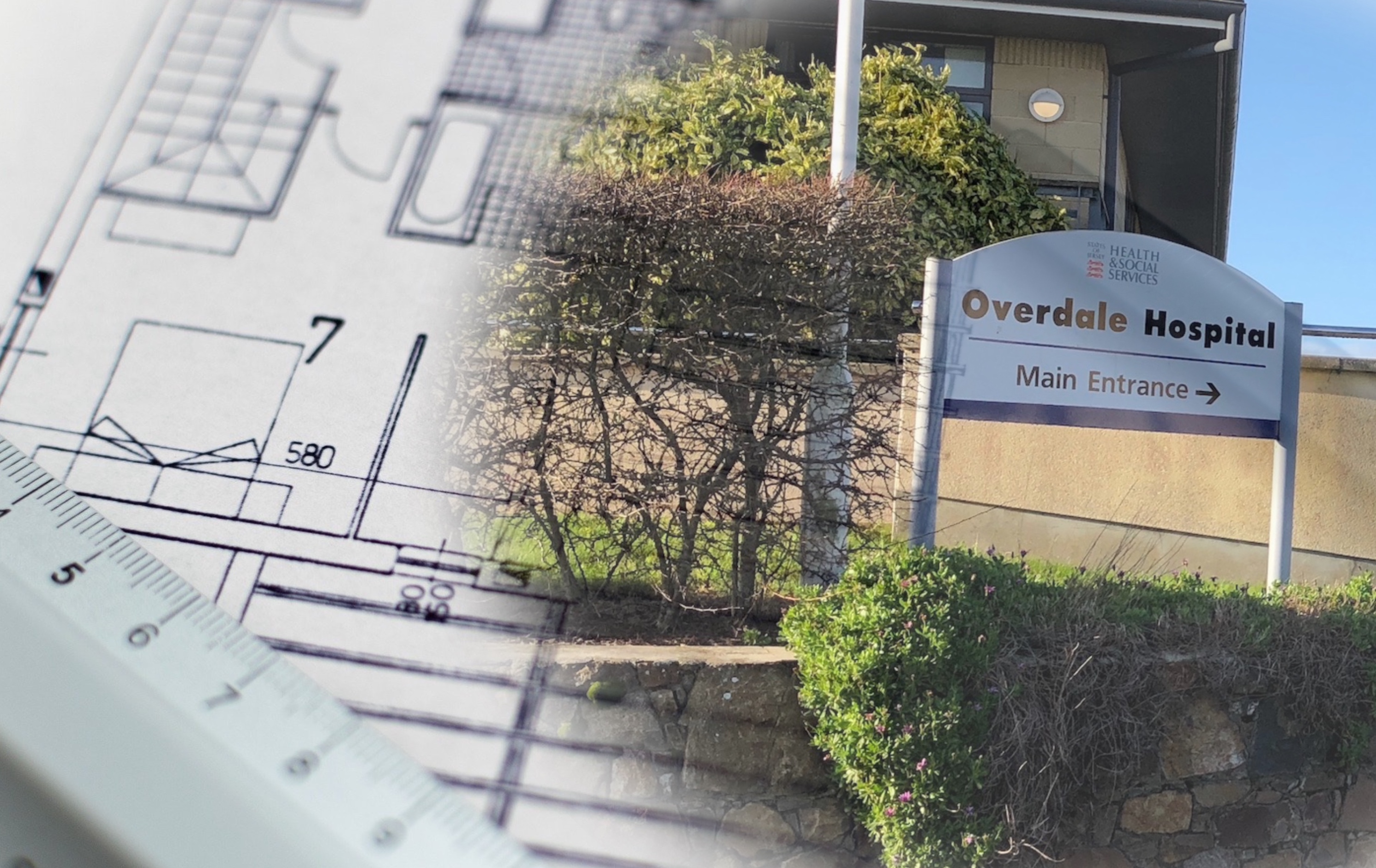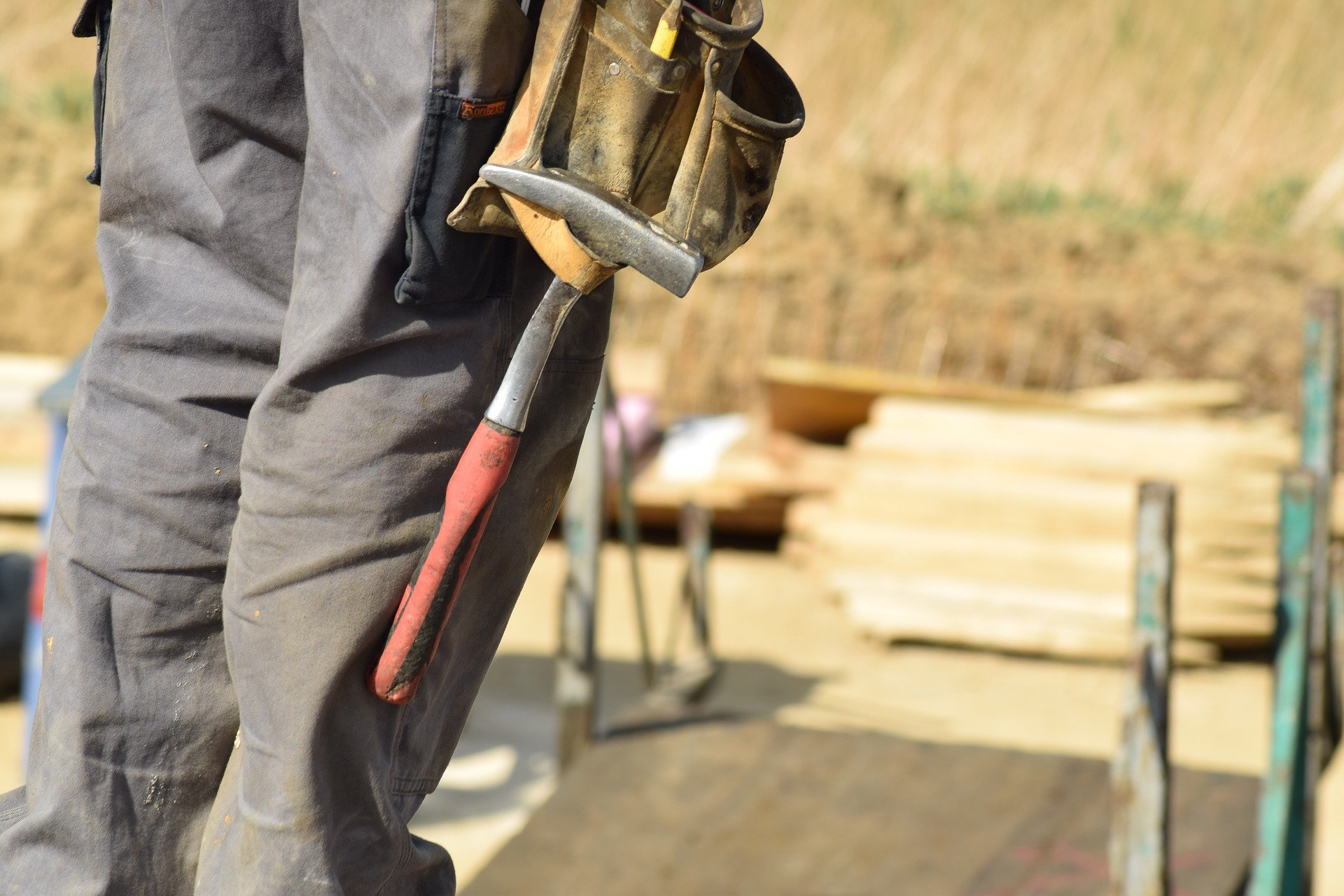


Jersey’s borrowing is set to peak at over £700m in 2022, excluding the £800m needed for the future hospital – but that doesn’t mean we should fear spending on big builds.
The findings came in the latest report of the Fiscal Policy Panel (FPP), which is an independent group tasked with advising the Government about how best to protect the public purse.
They predict that Jersey’s economy is going to shrink by 7.6% this year.
The impact is a dramatic hit to budgets, which will leave a permanent hole in the Government’s budgets if action isn’t taken.
While Jersey has historically avoided borrowing and has unsettled some, FPP economist Professor Francis Breedon told Express that it is exactly the right approach to be taking at this time.

Pictured: Jersey's Rainy Day Fund should be seen as a "second line of defence", Professor Breedon said.
“Jersey’s public finances are among the best in the world. The fact that people in Jersey are worrying about borrowing shows how unlike the rest of the world it is. They are talking about record levels of borrowing on top of what they have already been doing for the last 20 or 30 years, so actually even though this feels like a tricky time for Jersey’s public finances, even after this crisis is over, the public finances will be in a pretty good shape certainly compared to other countries.”
Meanwhile, the Rainy Day Fund – officially known as the Strategic Reserve – should be seen as a “second line of defence.”
He added: “Not to sound too depressing, but it could get a lot worse and therefore being ready to react to that is going to be important and borrowing has given Jersey a bit more flexibility to deal with that. Hopefully that disaster scenario doesn’t come through, but the old expression is, ‘Hope for the best, plan for the worst.’”
He later added: “[The Rainy Day Fund] is more aimed at one of these very largely permanent problems like a change in regulations meaning the finance sector leaves – that’s really what it’s aimed at. There will be some permanent effects, but largely [the pandemic] is a temporary thing – most of this will hopefully be gone in a few years’ time. It’s not necessarily the right time to run down the reserves and build up again.”
Professor Breedon added that it was a misconception that borrowing should only be an option when the cost of borrowing is less than the returns the island gets on its reserve fund.
“That isn’t a reason to borrow…Borrowing has changed the risk profile of Jersey’s finances and made them slightly more risky. It wasn’t a free lunch – it came at the price of an increased riskiness of the government balance sheet and so that shouldn’t be the reason for doing it.”
While the £700m borrowing spike in 2022 - which, including the cost of the hospital, will take the island’s borrowing over £1bn – may cause anxiety in some, the FPP’s message was not to start trying to pay it back right away.

Pictured: The future hospital, which will be built at Overdale if States Members agree, is estimated to cost up to £800m.
They said it was “not appropriate” to propose “significant new or increased revenue streams in 2021”, such as new or higher taxes – but Professor Breedon noted that it was worth thinking a few years’ ahead.
As well as sticking with its £120m savings programme, he said that the Government should focus on spending to save – and therefore shouldn’t be put off large-scale builds, like the new hospital or some of the other big-ticket items featuring in the Government Plan’s £396m capital agenda over the next four years.
“Not all countries do this. When you are having a difficult time and your finances are looking frightening, it’s very easy to say, ‘Let’s not do these capital projects, let’s just save money.’ But that’s not the right approach. These are long-running projects that will eventually pay the money back you’ve invested in them in terms of improving people’s health or outcomes.”
Among the FPP’s findings was that there is a higher level of unemployment in the construction sector at the moment, making it an ideal moment to get building to stimulate the economy.
However, he warned that each project will have to be planned out carefully, taking capacity in the construction sector into account.

Pictured: Construction projects could help stimulate the economy.
“Historically, we’ve said if you do these projects at a time of limited capacity in the construction sector, you’re going to find yourself using much more off-island resources, which still means it’s worth doing, but you don’t get the double benefit of, for example, ‘I’ve got a hospital and I’ve stimulated the local economy.’”
While the FPP declined to make recommendations on specific projects, Professor Breedon said that the ones to prioritise would be those that create jobs and stimulate productivity.
“Productivity growth in Jersey has been disappointing for a number of years now – clearly, if the Government can do something to make that productivity situation improve, that will have a long-term benefit for the public finances. [The project] will, in a sense, pay for itself.”
The Government had suggested it would look at an Infrastructure Fund drawing support from the private sector for some of its capital projects.
But the FPP's report appeared to express reservations about the idea, suggesting that other financing options should be considered.
"It’s important to keep an eye on the bigger picture – Governments have a tendency to put things in little buckets separately from one another. It’s not a bad idea, but it’s important that it isn’t considered as a completely standalone thing that doesn’t fit in with the broader context of Government," Professor Breedon explained.
Reflecting on the stimulus measures put in place so far to help the local economy weather the covid storm, which have included the Co-funded Payroll Scheme and the £100 voucher scheme, Professor Breedon said they had largely fitted the FPP’s recommendation of acting in a way that was “targeted, timely and temporary” – though he acknowledged that the former is a difficult criteria to fulfil at short notice.
“It’s hard to be timely and be very micro about those measures. I think the measures were the right ones, given that the speed of action had to be quick,” he said.
The FPP’s report, however, notes that the hospitality industry has “suffered most” in response to the pandemic, with Professor Breedon acknowledging the sector could do with specific help in future.
The Government has previously pledged a specific industry scheme, but details are yet to be announced.
Naturally, this will involve more spending, but, Professor Francis said now was not the time to worry about the hole it will leave.
“The key message is do whatever it takes at the moment – let’s forget we’re knocked out at the moment, we just have to get through this. Clearly there will be a day hopefully in the not too distant future when we have to survey the damage that’s been caused and try and get everything back into balance when that’s happened so with this report, we don’t want to push too heavily on, ‘You’ve got to pay for this,’ because this isn’t the moment to be thinking about that. This is the moment to manage the crisis.”
Noting that there was still much uncertainty, Professor Breedon said that, if there are any positive opportunities to be drawn from the crisis, Jersey should be well-placed to seize them.
“A good thing about Jersey, which is generally true of small countries, is that they are quite nimble so it is the case that if opportunities to arise, I would expect Jersey to be one of the places that moves fast to do something about them.”
Comments
Comments on this story express the views of the commentator only, not Bailiwick Publishing. We are unable to guarantee the accuracy of any of those comments.